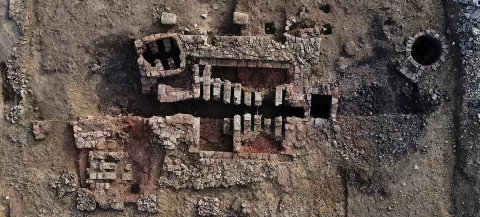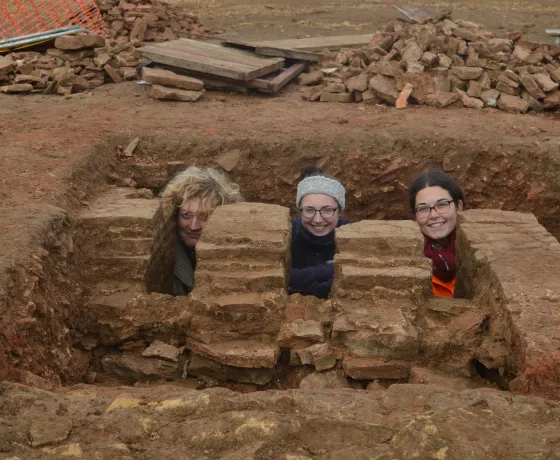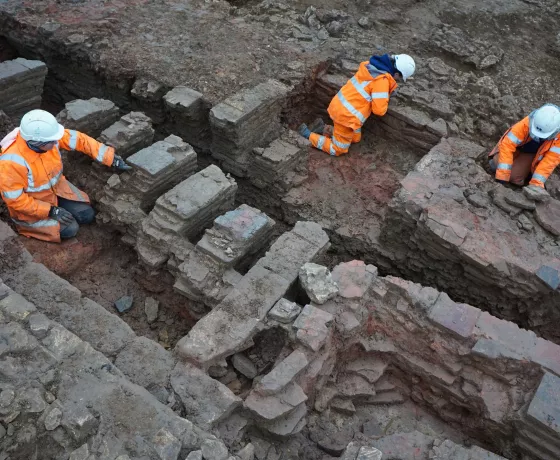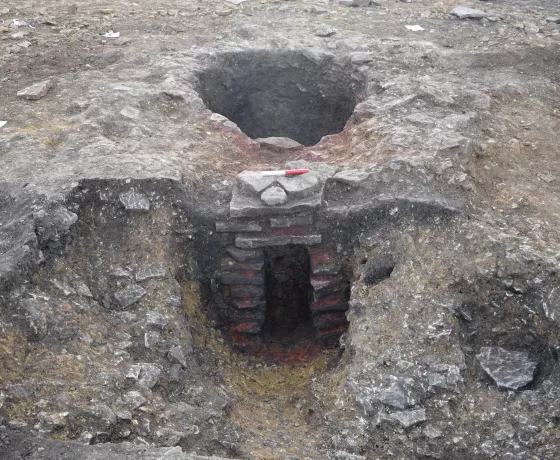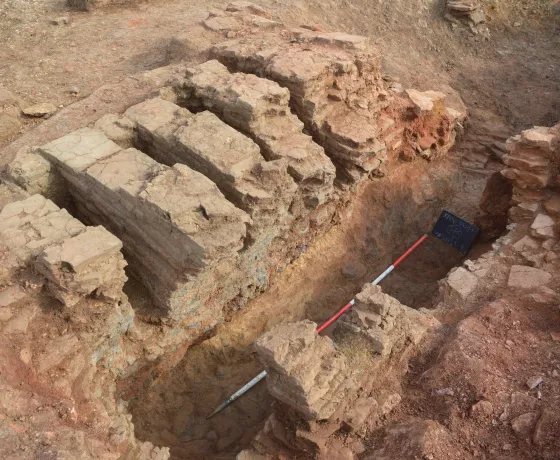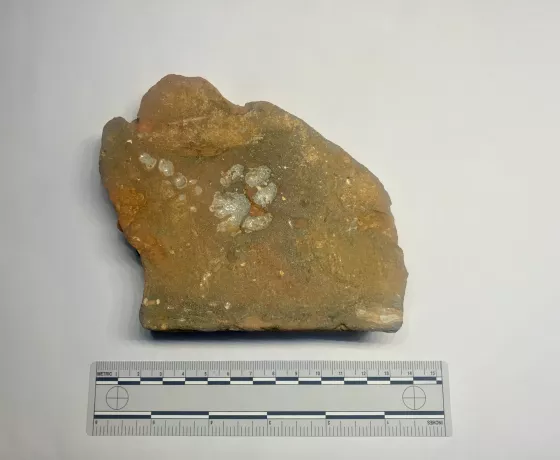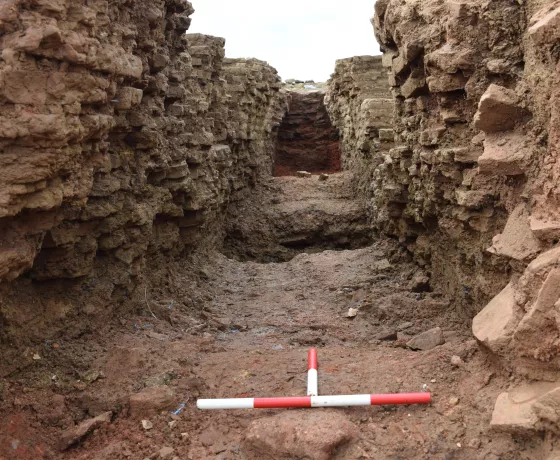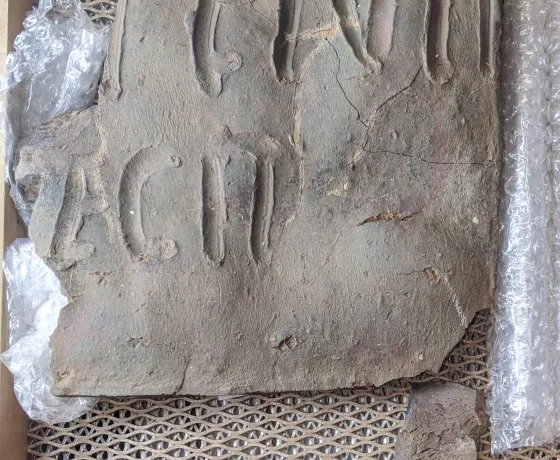Between 2019 and 2022, Oxford Archaeology carried out archaeological investigations at Priors Hall Park, near Corby in Northamptonshire. The excavations were done on behalf of Urban & Civic ahead of a new planned housing development which is now a thriving community.
A Roman villa had been found (but not excavated) on the edge of the project area in 2011, so the team at the site were expecting some Roman finds, maybe traces of buildings and features. What the three seasons of excavations uncovered was a much more complex and fascinating site that anyone would have expected: an Iron Age settlement with ironworks, a Roman mausoleum turned into a manufacturing site, a Roman road, and many tiles, some revealing stories of everyday life in Roman Britain.
The site was featured in Current Archaeology's issues 370 (from 2020) and 395 (from 2023).
A very special site
The excavations at Priors Hall Park uncovered aspects of rural life in Roman Britain that are often overlooked: archaeologists found an industrial complex, situated within a Roman villa estate and dating to the late third to the middle of the fourth century AD, coinciding with the peak of the villa building tradition.
Over 2000 villas are known from Roman Britain and over forty are known in Northamptonshire alone. Many of these have been excavated, but usually the main focus of the investigation is the villa buildings; far less is generally known about the sourcing and manufacturing of materials to construct them and how they operated. Even less is known about the people who built and maintained them.
The site at Priors Hall Park changed all that.
From mausoleum to tile factory
The outstanding discovery at this site was a stone-built Romano-Celtic temple and mausoleum, probably built during the early habitation of the villa. Mausolea are a common feature in the Roman empire but very rare in Britain; so the Priors Hall Park one was already an extraordinary find. What happened to it in the third century AD makes the discovery even more special: the building was turned into a manufacturing centre to produce materials for the maintenance of the villa. Two large tile kilns and five pottery kilns were identified by the team, together with some other buildings that were probably used for storage of tools and materials.
A Roman road discovered during the 2021 and 2022 excavations had been built soon after the Roman conquest in 43 AD. Initially the road must have linked the ironworks that were discovered on site to other centres and villas. The ironworks originated in the Late Iron Age and continued for some time after the Romans had established their rule in England.
Potentius the tile maker
One of the most exciting finds from Priors Hall Park is -surprisingly- a defective tile. This unlikely treasure offers a glimpse into a regular work day for Potentius the tile maker and hints about how (or if) ordinary people perceived themselves as part of the Roman empire.
